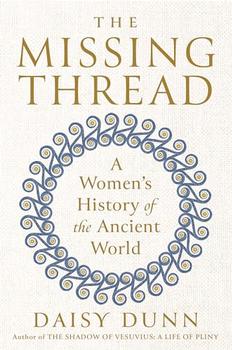
by Susan Daitch
Indiana Jones meets Italo Calvino in a masterful, absurdist blend of biting social satire, rollicking adventure, invented history and mythology.
A series of archeological expeditions unfolds through time, each one looking for the ruins of a fabled underground city-state that once flourished in a remote province near the border of present-day Iran, Pakistan, and Afghanistan. Sealed off for centuries by seismic activity, Suolucidir beckons with the promise of plunder and the glory of discovery, fantasies as varied as the imaginations of her aspiring modern-day conquerors.
As the tumult of the twentieth century's great wars, imperial land grabs and anti-colonial revolutions swirl across its barren, deserted landscape, the ancient city remains entombed below the surface of the earth.
A succession of adventurers, speculators and unsavory characters arrive in search of their prize, be it archeological treasure, oil, or evidence of crimes and punishments. Intrigue, conspiracies, and counter-plots abound, and contemporary events interfere with each expedition, whether in the form of the Axis advance, British Petroleum, or the Revolutionary Guards. People disappear, relics are stolen, and the city closes in upon itself once more.
A satiric, post-colonial adventure story of mythic proportions, The Lost Civilization of Suolucidir takes place against a background of actual events, in a part of the world with a particular historical relationship to Russia and the West. But though we are treated to visual "evidence" of its actual existence, Suolucidir remains a mystery, perhaps an invention of those who seek it, a place where history and identity are subject to revision, and the boundaries between East and West are anything but solid, reliable, or predictable.
"Starred Review. With shades of Umberto Eco and Paul Auster, this brilliant, addictive adventure novel is about the search for a mythical lost city located somewhere in modern-day Iran. As a succession of explorers and shady characters dig deeper into the landscape, the ancient secret of Suolucidir is gradually revealed. This is brainy, escapist fiction at its best." - Publishers Weekly
"An inventive concoction but a middling book; though without the grating ineptitude of Dan Brown, also without the charm of a Stanislaw Lem or Jorge Luis Borges." - Kirkus
"Susan Daitch has written a literary barnburner of epic proportions ... It is also utterly original, the work of a visionary writer with an artistic sensibility all her own." - Andrew Ervin, author of Burning Down George Orwell's House
"This is a novel of archeology and history, of mythology and empire, powered by an undeniable call to adventure and a deep yearning for understanding, written by a novelist who manages to surprise on nearly every page." - Matt Bell, author of Scrapper
"Daitch's latest is a beguiling and virtuoso companion to our inevitable end: a novel that wrenches, sentence by fine sentence, some order from the chaos, while never shortchanging the chaos itself." - Mark Doten, author of The Infernal
This information about The Lost Civilization of Suolucidir was first featured
in "The BookBrowse Review" - BookBrowse's membership magazine, and in our weekly "Publishing This Week" newsletter. Publication information is for the USA, and (unless stated otherwise) represents the first print edition. The reviews are necessarily limited to those that were available to us ahead of publication. If you are the publisher or author and feel that they do not properly reflect the range of media opinion now available, send us a message with the mainstream reviews that you would like to see added.
Any "Author Information" displayed below reflects the author's biography at the time this particular book was published.
Susan Daitch is the author of three novels, L.C., The Colorist, Paper Conspiracies, and a collection of short stories, Storytown. Her short fiction and essays have appeared in Black Clock, Guernica, Conjunctions, Slice, Tablet, Tin House, McSweeney s, Bomb, Ploughshares, The Barcelona Review, failbetter, TriQuarterly, ReDivider, The Norton Anthology of Postmodern American Fiction, and elsewhere. She has been the recipient of a 2012 New York Foundation for the Arts Fellowship in Fiction, two Vogelstein fellowships. Fall Out, a novella, was published in June 2013 by Madras Press, all proceeds donated to Women For Afghan Women.






Your guide toexceptional books
BookBrowse seeks out and recommends the best in contemporary fiction and nonfiction—books that not only engage and entertain but also deepen our understanding of ourselves and the world around us.